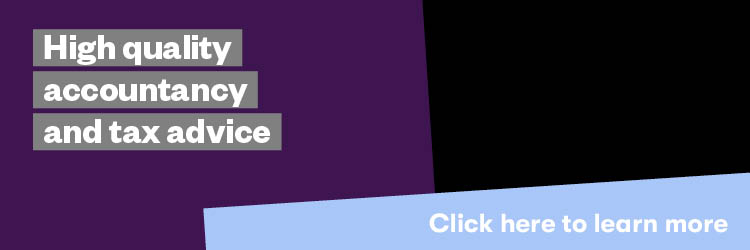
Dougie Todd
VAT Partner, haysmacintyre

Jon Dawson
Partner, Head of Creative, Media & Technology, haysmacintyre
Businesses that have switched to technology to deliver services are being warned about how VAT legislation rules could impact changes to their operating formats.
Jon Dawson, Partner and Head of Creative, Media and Technology at London-based accountancy firm haysmacintyre, says: “Increasingly, we are seeing companies use technology to deliver services that are traditionally supplied through physical and face-to-face service provision.”
Dawson continues, “On occasion, companies have been looking to brand themselves as tech companies, often helping to support fundraising and valuation aspirations. However, they should be mindful that HMRC may have a different view on what constitutes a technology business.”
Accountancy specialists warn companies may be applying value-added tax (VAT) rules incorrectly. Supplies of technology are liable to VAT, but service providers can be considered to be supplying the underlying service, which may have a different VAT treatment.
Changes in tax landscape
Dougie Todd, VAT Partner at haysmacintyre, says the tax landscape has evolved in recent years regarding services delivered by technology and warns it will change further in the next 5–10 years. The challenge is particularly acute for companies that supply medical, educational or financial services, many of whom have now transitioned to supplying services digitally.
“There is a real tension between at what point does one stop being a supplier of these services, which have one VAT consequence, to becoming a supplier of tech services, which is treated differently,” explains Todd. “Many businesses are still not aware of where that line starts and ends.”
Who is VAT-exempt?
In one example, if a patient speaks to a doctor remotely, that is still a supply of medical services and exempt from VAT. However, if people access a healthcare company’s website and data to research symptoms — that may be considered a supply of data and technology, which is no longer VAT-exempt.
Todd says that poses challenges for firms on where they can — and cannot — recover VAT on costs they incur. Organisations that may have charged and recovered VAT on development and startup costs could end up having to pay that back to HMRC.
Organisations that may have charged and recovered
VAT on development and startup costs could
end up having to pay that back to HMRC.
‘Always Speaking’ principle case
UK VAT law applies the so-called ‘Always Speaking’ principle. This reflects on the scenario when the legislation was written, but if a new situation emerges (as with ongoing technical innovation), courts have to consider whether it falls within the original intention of Parliament.
However, the principle was denied in a recent court case. A cinema argued that broadcasting a live performance of a national theatre production in the cinema should qualify for VAT exemption and be treated the same as a live production. “The court denied that on the basis that there was not any interaction between the performers and audience, so it could not be a live performance,” says Todd.
Potential for legislation to change
Companies using artificial intelligence (AI) to provide a medical diagnosis or education course would also become a supplier of technology. “In 5–10 years, we are going to see more businesses having to deal with the consequences of supplying technology rather than being core suppliers of medical, educational or other VAT-exempt services,” explains Todd.
Moreover, firms with an international market must be aware that VAT treatment is different when supplying a UK customer and a French customer, for example. However, a consequence of Brexit does give the UK the ability to change its own VAT laws more easily.
Todd suggests that organisations looking to enter the digital supplies market and assuming they can reclaim VAT on significant development costs seek advice. “Fundamentally, businesses need to consider two points: are you supplying services or are you supplying information or data? It is possible to be doing one or the other, or both, but businesses must be aware that each could have a very different consequence and could fundamentally impact a business’ financial model and, in some cases, make the operation uneconomic.”



